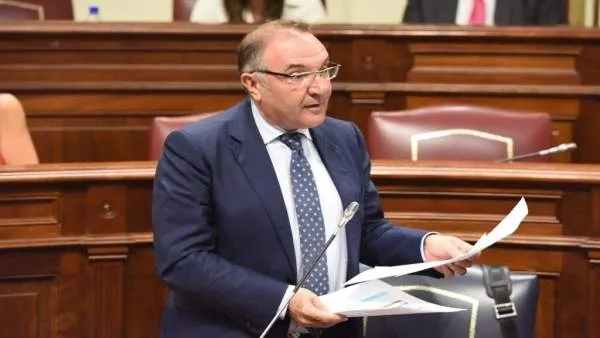The Minister of Health of the Canary Islands Government, José Manuel Baltar, said Wednesday that the Comprehensive Diabetes Plan is "practically finished" and could also be presented in January, also including in the 2018-2024 Canary Islands Health Plan.
In a parliamentary appearance, he commented that according to primary care figures, those affected by diabetes are around 187,000 people, hence this pathology is a "priority" for the Ministry, which addresses it with prevention, early detection and control systems.
Baltar has reported to the deputies the action carried out by the SCS, with a 40% increase in virtual consulting with endocrinology or the purchase of 60 new retinographers, which have a presence in more than 100 health centers of the islands.
The counselor has played "worrying" that there are not diagnosed diabetics in the Canary Islands, and given the demand for the opposition that there is a transverse strategy, there has been a program of school dining rooms, a healthy life circles strategy and a planof fruits and vegetables at school.
The deputy of the Mixed Group (ASG), Melodie Mendoza, commented that the growth of diabetes in the Canary Islands is "alarming", apart from the fact that there are about 60,000 affected canaries who do not know they have the disease.
"Before diabetes there are no means half inks," he said, because in the Canary Islands there is a "pandemic" that must be stopped, for which he has demanded a "comprehensive plan" of the entire government that includes other areas, such as education.
"We cannot always stay in the health field since we run the risk of repeating errors," he said, indicating that prevention "begins from childhood" with the adoption of healthy lifestyle habits.
The spokesman for Nueva Canarias (NC), Román Rodríguez, has said that diabetes is a "silent" disease that does "terrible damage", generating serious problems of blindness, cardiovascular or renal.
Diabetes is a "disaster" and with great economic impact
"It is a disaster," he said, in addition to generating a "devastating impact" on public health accounts.
María del Río, from Podemos, has demanded a comprehensive diabetes plan and that Fadican's demands are addressed to incorporate new devices into the Canarian public health services portfolio.
Zacarías Gómez, of the Popular Group, has sung the "mea blame" of public administrations because it has "failed" in the attention to the Canarian diabetics, since there is no comprehensive plan when it is a disease that causes one in five infarctions andOne in seven stroke.
For the socialist group, Marcos Hernández has outlined that up to 300,000 canaries can suffer diabetes, which in turn generate more than 22% of health expenditure."It is a very sensitive issue to make good politics," he said, highlighting that the diabetes plan must be "integral" because it is a pathology closely linked to healthy lifestyle habits.
José Manuel Pitti, from the nationalist group, highlighted the increase in health coverage to the diabetics of the islands, affecting early detection, with more than 1,500 professionals, and the treatment and control, with the 'Retisalud' program, which hasbeen recognized nationwide."There is a long way to go but there are advances and progress," he said.


